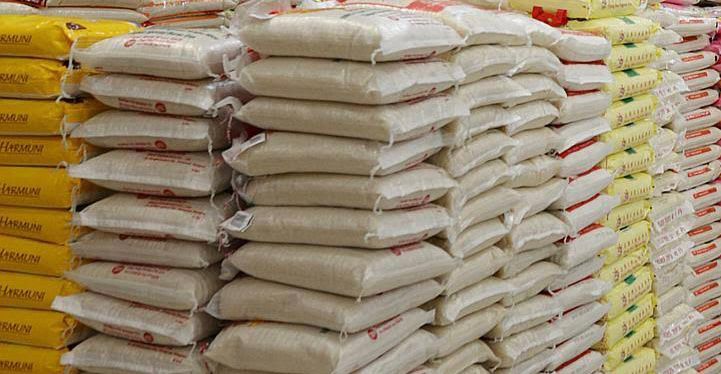Economists and financial analysts have attributed the mixed reactions trailing the recent drop in the price of rice across Nigeria to a conflict of interest between consumers and traders.
The Chief Executive Officer of the Centre for the Promotion of Private Enterprise (CPPE), Muda Yusuf, and the Executive Officer of SD&D Capital Management, Idakolo Gbolade, stated this in separate interviews with newsmen.
Reports over the weekend indicated that the price of a 50-kilogram bag of rice had fallen to between ₦55,000 and ₦75,000, from about ₦85,000 in early 2025. The decline was recorded in major markets such as Mile 12 and Oyingbo in Lagos, as well as in Abuja’s Dutse and Kubwa markets, where prices ranged between ₦65,000 and ₦85,000 depending on the brand.
Data from the National Bureau of Statistics (NBS) also showed that headline and food inflation dropped to 18.02% and 16.87% respectively in September 2025, from 20.12% and 21.87% in August.
While consumers have welcomed the lower prices, traders expressed concern that reduced profit margins could threaten their businesses.
Speaking on the development, Yusuf said the federal government must strike a balance that keeps food prices affordable without crippling local traders and producers.
“It’s a conflict of interest. Nigerians want cheaper rice, while business owners want higher profit margins,” he said. “The government must be consistent with its food policy to ensure sustainability and support local producers through incentives that enhance capacity.”
He added that the rice import waiver policy, which expired in December 2024, was a temporary measure to stabilise prices and should be reviewed to maintain affordability.
Also commenting, Idakolo noted that the price drop showed that the government’s temporary import waiver policy was beginning to yield positive results.
“The decline in rice and other staple food prices is proof that some of the government’s policies are working,” he said. “Despite the tough start marked by fuel subsidy removal and exchange rate deregulation, the Tinubu administration has managed to stabilise the economy through targeted interventions.”
Last year, the federal government introduced a food import duty waiver to reduce food prices, though local farmers have since complained that the policy undermines domestic food production.

